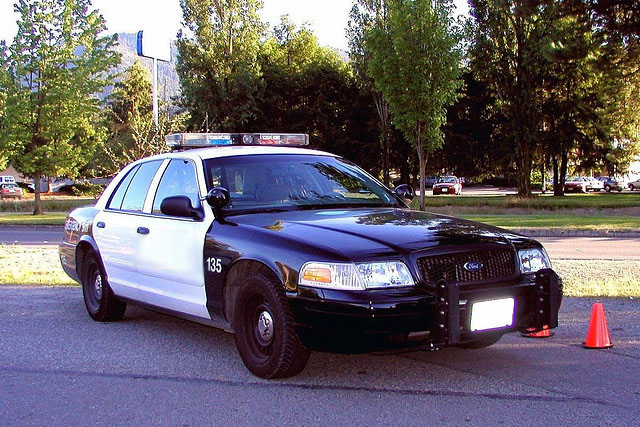Criminal Procedure

An officer needs an articulable and reasonable suspicion that law was violated before stopping a vehicle.
The United States Constitution provides that the “right of the people to be secure in their persons, houses, papers and effects, against unreasonable searches and seizures, shall not be violated.” U.S. CONST. Amend. IV.
The driver and passengers of an automobile do not lose their right to be secure against unreasonable searches and seizures. An officer cannot stop an automobile unless he has reasonable suspicion that a law was violated. “Temporary detention of individuals during the stop of an automobile by the police, even if only for a brief period and for a limited purpose, constitutes a ‘seizure’ of ‘persons’ within the meaning of this provision.” Whren v. United States, 517 U.S. 806, 809-10 (1996).
A police officer cannot stop a vehicle unless he has an articulable and reasonable suspicion that a law was violated. “[E]xcept in those situations in which there is at least articulable and reasonable suspicion . . . [of] violation of [a] law, stopping an automobile and detaining the driver in order to check his driver's license and the registration of the automobile are unreasonable under the Fourth Amendment.” Delaware v. Prouse, 440 U.S. 648, 673 (1979). On the other hand, an officer does not need to know beyond a reasonable doubt that the law was violated in order to stop a vehicle. “Reasonable articulable suspicion does not require that the officer prove that the defendant actually committed a motor vehicle violation; he need only prove that he had a reasonable and articulable suspicion of a violation (citation omitted).” State v. Woodruff, 959 A.2d 1233, 1236 (N.J. Super. Ct. Law Div. 2000).
“[T]he State need not prove that a motor-vehicle violation occurred as a matter of law. Constitutional precedent requires only reasonableness on the part of the police, not legal perfection.” State v. Williamson, 650 A.2d 348, 349 (N.J. 1994). Even if a driver “were not found guilty of the motor vehicle violation, such would not "impugn the propriety of the initial stop." State v. Murphy, 570 A.2d 451, 456 (N.J Super. Ct. App. Div. 1990). However, “prior to stopping an automobile for a violation . . . there must be an objective belief that the statute or code has been violated.” State ex rel. R.M, 777 A.2d 104, 1045 (N.J. Super. Ct. Ch. Div. 2001).
An officer might use a lane change or failure to use a turn signal as a pretext to stop a vehicle. In Williamson, the officer seized drugs after stopping a driver for failing to use his turn signal. However, the failure to signal did not affect other traffic. “N.J. §39:4-126 requires a motorist to signal a lane change in the event any other traffic may be affected by such movement. . . . [T]he officer ordering a stop must have some articulable basis for concluding that the lane change might have an effect on traffic.” Williamson, 650 A.2d at 349. The case was remanded to determine whether the officer had “objective basis to believe that a traffic violation had occurred.” Id. at 350.
Routine traffic stops that are mere pretexts to harass occupants of a vehicle for racial or other characteristics are also not unconstitutional per se if an officer has reasonable suspicion that a traffic law was violated. See Whren v. U.S., 517 U.S. 806 (1996). However, in New Jersey, an officer cannot stop a vehicle based on racial characteristics. As a result of allegations that the New Jersey State Police were conducting racially motivated policing, the Attorney General directed all an end of the practice. Police “shall not consider a person's race or ethnicity as a factor in drawing an inference or conclusion that the person may be involved in criminal activity, or as a factor in exercising police discretion as to how to stop or otherwise treat the person.” New Jersey Attorney General Law Enforcement Directive Number 2005-1.
